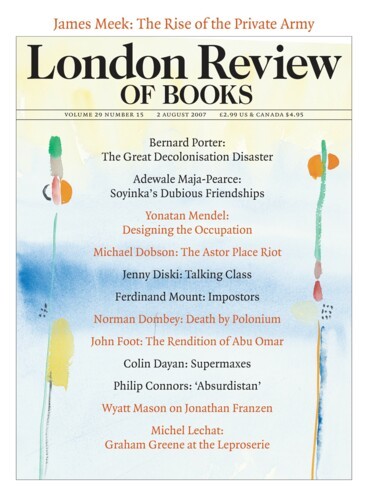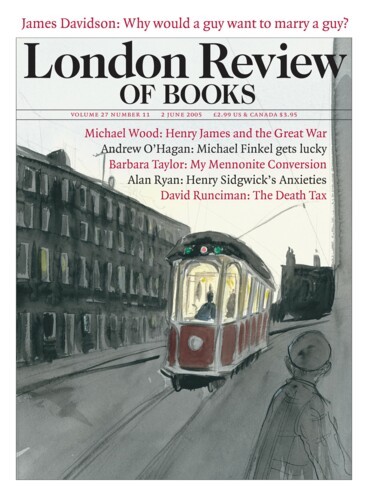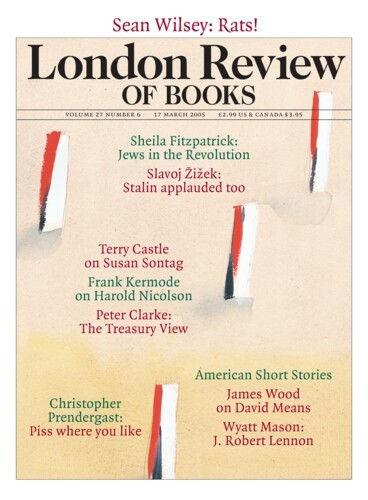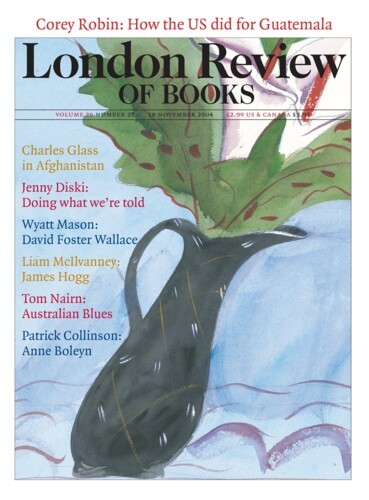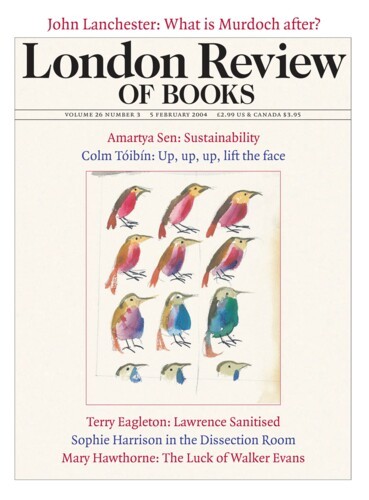Ink-Dot Eyes: Jonathan Franzen
Wyatt Mason, 2 August 2007
The confessional mode in literature has an uncomplicated appeal for both writers and readers: the unburdening of guilt, vicarious or otherwise. But as Tobias Wolff cautioned in his mordant memoir of military service during the Vietnam War, In Pharaoh’s Army: ‘Isn’t there, in the very act of confession, an obscene self-congratulation for the virtue required to see your...
